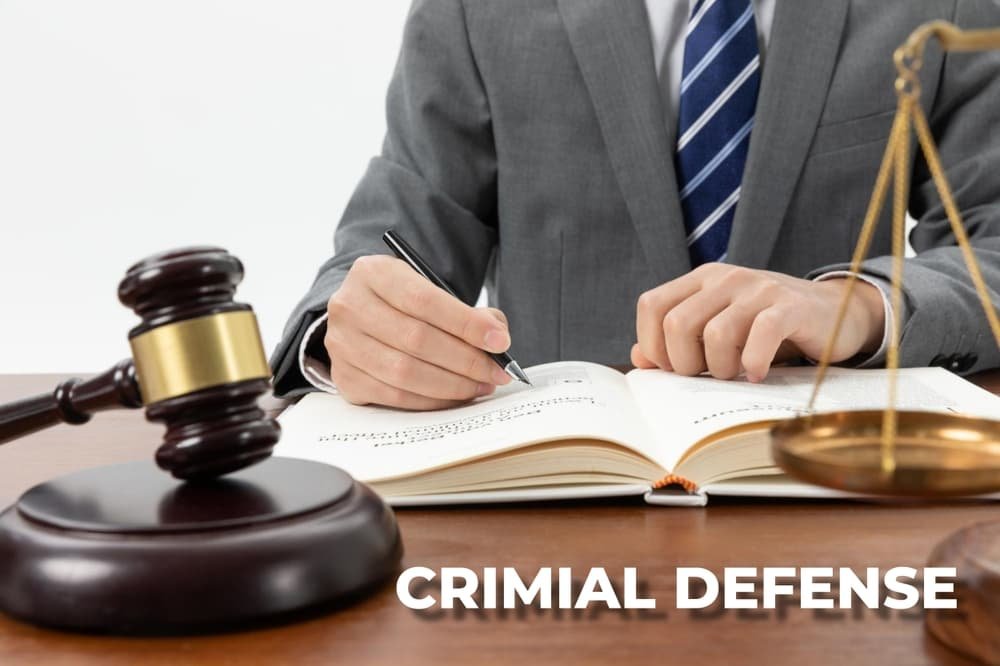The conclusion of a criminal trial isn’t always the end of the story. For many individuals in Florida who have been convicted of a crime, the fight for justice continues even after sentencing. That’s where post-conviction relief comes into play. Florida law recognizes that mistakes can occur during the trial process, errors in judgment, violations of rights, or ineffective legal representation can all impact the fairness of a conviction. Post-conviction relief is a legal pathway that allows people to challenge the outcome of their case and seek remedies such as a reduced sentence, a new trial, or even dismissal of charges.

If you or someone you care about has been convicted of a crime, understanding your options after conviction is critical.
Experienced Criminal Defense Lawyer
📞 (772) 828-1143
📧 info@jordizaragoza.com
📍 130 S Indian River Dr, Suite 202, Office 218, Fort Pierce, FL 34950
What Is Post-Conviction Relief?
Post-conviction relief (often referred to as PCR) is a legal process that takes place after a person has been convicted and sentenced. Unlike appeals, which challenge legal errors during the trial, post-conviction motions are used to raise issues that may not have been part of the trial record.
In Florida, post-conviction relief is governed primarily by Rule 3.850 of the Florida Rules of Criminal Procedure. This rule allows individuals who have been convicted to ask the court to vacate or correct a sentence based on specific legal grounds.
Common Grounds for Post-Conviction Relief
Post-conviction relief isn’t granted automatically. You must demonstrate that a legal issue or violation occurred during or before your trial that impacted the outcome. Some of the most common grounds include:
🔹 Ineffective Assistance of Counsel
If your defense attorney failed to investigate evidence, call witnesses, or properly represent you, that may be grounds for relief.
🔹 Newly Discovered Evidence
If important evidence comes to light after the trial, such as witness recantations or DNA test results, you may request a new trial.
🔹 Constitutional Violations
Violations of your rights, such as unlawful search and seizure, coerced confessions, or denial of due process, can justify post-conviction relief.
🔹 Sentencing Errors
If a judge imposed an illegal or excessive sentence or misunderstood the law, that mistake may be correctable through PCR.
🔹 Prosecutorial Misconduct
Withholding evidence or presenting false testimony may create a strong basis to challenge a conviction.
Difference Between Appeals and Post-Conviction Relief
People often confuse appeals with post-conviction relief, but they are legally distinct:
| Appeal | Post-Conviction Relief |
| Filed in the appellate court | Filed in the trial court |
| Challenges trial errors on the record | Can include new evidence or off-the-record issues |
| Strict deadlines (usually 30 days post-judgment) | Often allows a longer window |
| May lead to reversal or a new trial | May vacate, reduce, or correct a sentence |
Understanding which path is right for your case requires careful legal analysis.
The Process of Filing for Post-Conviction Relief in Florida
Here is a general outline of the post-conviction process in Florida:
1. Review and Investigation
An attorney will examine court transcripts, trial records, and new evidence to determine if legal errors occurred.
2. Filing a Motion
A motion for post-conviction relief is submitted to the trial court under Rule 3.850, outlining the grounds and supporting evidence.
3. Response from the State
The State Attorney’s Office may file a written response either opposing or addressing the claims.
4. Evidentiary Hearing
In some cases, the court may grant a hearing to allow both sides to present arguments and evidence.
5. Ruling
The judge will issue a ruling, which could result in the conviction being upheld, modified, or overturned.
Why Post-Conviction Relief Matters
A criminal conviction can follow a person for life, impacting employment, housing, education, and personal relationships. For non-citizens, it may even result in deportation.
Post-conviction relief provides a second chance not just at freedom, but at justice. It’s not about creating loopholes or escaping responsibility; it’s about making sure that the legal system operates fairly and that no one is wrongfully punished.
The Role of a Criminal Defense Attorney in Post-Conviction Cases
Post-conviction law is complex, time-sensitive, and highly procedural. An experienced defense attorney plays a critical role in:
- Identifying valid legal grounds for relief
- Reviewing transcripts and trial records for inconsistencies
- Uncovering new evidence or witnesses
- Preparing and filing all necessary documents
- Representing clients at hearings
- Navigating both state and federal procedures, when necessary
A strong post-conviction strategy often requires both legal skill and investigative work. Every detail matters, and deadlines are strict—especially for motions under Rule 3.850, which usually must be filed within two years of conviction (with limited exceptions).
Help Is Available in Fort Pierce, Florida
If you’re in Fort Pierce or anywhere in St. Lucie County and have already been convicted of a crime, it’s not too late to take action. Whether you believe your rights were violated, your sentence is unfair, or new evidence has come to light, there may be a legal path forward.

Experienced Criminal Defense Lawyer
📞 (772) 828-1143
📧 info@jordizaragoza.com
📍 130 S Indian River Dr, Suite 202, Office 218, Fort Pierce, FL 34950
Even if your case feels like it’s over, it’s worth exploring your options with someone who knows the post-conviction process inside and out.
Reclaiming Justice, Even After Conviction
Post-conviction relief is about more than just challenging a sentence; it’s about reclaiming justice when something went wrong. If you’ve already served time or are still fighting the consequences of a conviction, don’t assume nothing can be done. There are legal tools available to challenge unfair outcomes, and with the right help, you can take the next step forward.
